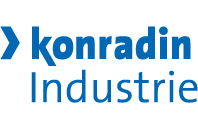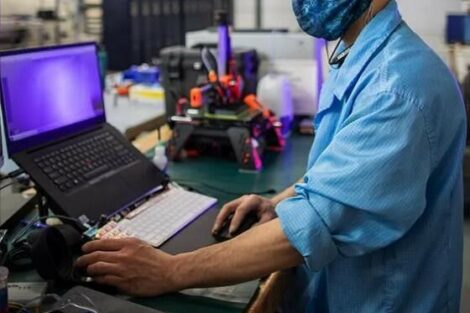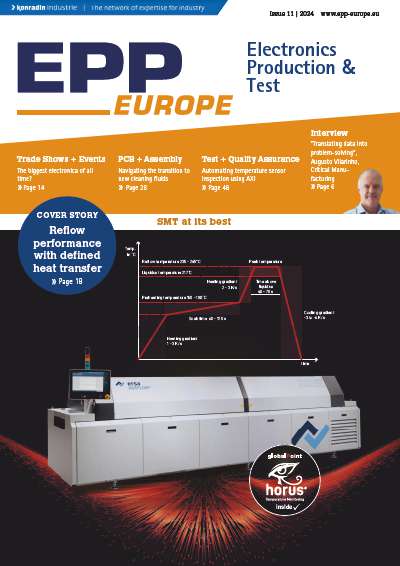What exactly is the Critical Manufacturing MES IoT data platform?
Our IoT data platform is an advanced, integrated solution designed to collect, contextualize, and analyze data from manufacturing processes and other critical systems in real-time. A key aspect of the data platform is that it serves as a single, unified and integrated manufacturing data store for all manufacturing relevant data, including MES and equipment data. Because data is stored in a standardized and contextualized way using a canonical data model, all sorts of correlations, analyses, visualizations and reports can be generated. This data can also be used for online visualization, real-time process control, root-cause analysis and process improvement. The platform provides manufacturers with deeper insights into production efficiency making it a powerful tool for optimizing operations.
How will the sector benefit from harnessing data better?
An IoT data platform allows manufacturers to capture, process, and analyze data from all stages of production, providing valuable insights that can be used to optimize processes, reduce downtime, and improve product quality. By harnessing data more effectively, manufacturers can make faster, more informed decisions, respond more quickly to changes in demand, and ultimately, deliver better products to market. Our data platform has the capability to deal with large amounts of data without disrupting the regular operations of an electronics factory. Scattered, isolated and sometimes even trashed data, can be captured and processed in one single place in a safe, contextualized and efficient manner.
You claim this MES data platform is the first of its kind. Why has it taken so long to develop such a platform?
Developing a platform like ours requires a deep understanding of the complexities inherent in modern manufacturing environments and the technology needed to handle them. This includes integrating IoT, machine learning and real-time analytics into a single, cohesive platform which is a significant challenge. It has taken time to ensure that the platform is not only technologically advanced but also user-friendly, scalable, and adaptable to the diverse needs of different industries. Our focus has been on delivering a solution that truly adds value by enhancing operational efficiency and providing actionable insights, rather than simply offering more data. A very important existing capability is the “canonical data model” which is something comparable to a “translator” of the different files and data types that may be collected from different sources, into a common “language”, allowing a data linearization to better apply data analytics capabilities.
What kind of challenges did the company face when developing this tool?
One of the main challenges was ensuring compatibility with a wide range of existing systems and machines, which vary greatly between manufacturers. Additionally, the need for data processing and contextualization required us to develop a robust and scalable architecture that could handle large volumes of data without compromising performance. We also had to ensure that the platform could be easily integrated into diverse manufacturing and IT environments, requiring extensive testing and iteration to achieve the desired level of reliability and flexibility.
How can the data platform be integrated into existing production lines? Is it compatible with all machine brands?
The data platform is designed with flexibility in mind, allowing for seamless integration with existing production lines, regardless of the machine brands in use. The platform’s architecture supports a wide range of equipment and systems, enabling manufacturers to integrate it into their existing environment without significant disruptions. Our system leverages open communication standards like OPC-UA, SECS/GEM, OIB or IPC-CFX which allows the platform to ensure compatibility and interoperability across different machines and systems, making it an ideal choice for diverse manufacturing environments.
How exactly can the platform enhance MES functionality?
The data platform was developed specifically for manufacturing and provides unified integration with Critical Manufacturing MES. It uses MES to enrich and contextualize data from multiple sources, including virtually all data coming from equipment and ensures that data pipeline is standardized and comprehensive. This allows for real-time control of both the equipment and the process using stream processing and applying statistical or predictive models. Thus, the system can trigger alarms or even execute immediate corrective and preventive actions, such as adjusting equipment parameters, stopping the equipment, requesting maintenance or creating a future hold. Customers that deploy the data platform will benefit mainly from three key capabilities: 1) the real -time process control that detects deviations as they occur for on-time corrections; 2) the root-cause analysis capabilities that allow customers to quickly address problems; 3) the insights and knowledge that can be extracted from historical data that enables continuous process improvement. One specific example is the idea of “predictive maintenance”. Understanding the performance of equipment over time, then providing predictions as to when service would be required and offering or executing process changes that will optimize when maintenance is executed will drive real throughput gains.
How is machine learning utilized within the platform?
Machine learning is a core component of our platform, enabling it to learn from historical and real-time data to improve its predictive capabilities. The platform is designed to work out of the box’, meaning it can be integrated into your operations without the need for specialized data scientists. As the platform collects more data over time, it continuously refines its algorithms, becoming more accurate in predicting equipment failures, optimizing production schedules, and identifying process improvements. This adaptive learning capability ensures that the platform remains relevant and effective as manufacturing environments evolve.
Can you explain a bit more about the role of open-source software platforms like Apache Kafka?
Open-source software platforms like Apache Kafka play a crucial role in our data platform by providing the foundation for real-time data streaming and processing. Apache Kafka enables the efficient transfer of large volumes of data between different systems within the manufacturing environment. Our MES IoT data platform can handle the demands of modern manufacturing operations, providing timely and actionable insights that drive better decision-making. To comply with our customers‘ high standards, we‘ve enhanced an architecture that is utilized already by some of the largest companies in the world in terms of massive data processing.
What kinds of security measures have been implemented to protect sensitive data in the platform?
Data security is a top priority for us, and our platform incorporates multiple layers of protection to safeguard sensitive information. These measures include encryption of data both at rest and in transit, robust access controls to ensure that only authorized personnel can access critical data, and continuous monitoring for potential security threats. Additionally, the platform is designed to comply with industry standards and regulations, providing manufacturers with peace of mind that their data is secure.
What business advantages does integrating this MES data platform offer to manufacturers?
One of the key advantages of integrating our MES data platform is that it allows manufacturers to focus more on solving problems rather than just collecting data. By bringing together machine data, MES, and any other relevant data into one unified platform, operations teams can spend their time addressing issues and improving processes instead of chasing down information. Additionally, with the platform’s ability to anticipate issues before they escalate, manufacturers can proactively manage uptime, maintain schedule compliance, and ensure quality. This proactive approach not only streamlines operations but also helps maintain high standards in key performance areas, ultimately leading to better business outcomes.
Can you share any case studies or success stories from adopters of this solution?
The response from the industry has been very positive, with many manufacturers recognizing the value of integrating real-time data analytics into their MES systems. We are already engaged with Data Platform activities with some of our existing customers.
How can the platform be improved?
Advanced technology is really transforming how the industry works, and we are always working to put more power in the hands of users. By continuing to develop easy-to-use “configure, not code technology”, we aim to reduce system ownership costs and maximize the return on investment for our clients. Future improvements could include even deeper integration with additional advanced analytics algorithms to provide more precise predictive insights, as well as the incorporation of new data sources to expand the platform’s analytical capabilities. In addition, we have enhanced the data platform with extensibility capabilities related to the inclusion of additional apps that while dealing with the processed data, will significantly enhance the MES + Data Platform ecosystem with additional features both for visualization and execution.
How does the data platform support scalability and future growth for electronics manufacturers?
Our platform is highly scalable whether you are looking to expand data collection from individual machines, entire production lines, or even across multiple plants. As manufacturers grow and their operations become more complex, our platform can easily accommodate increased data volumes and integrate more diverse data sources. This scalability ensures that manufacturers can continue to leverage the platform’s capabilities at every level of their operations, supporting sustainable growth and maintaining competitiveness across all sites and systems.
Semicon Europa, Stand C2.401














